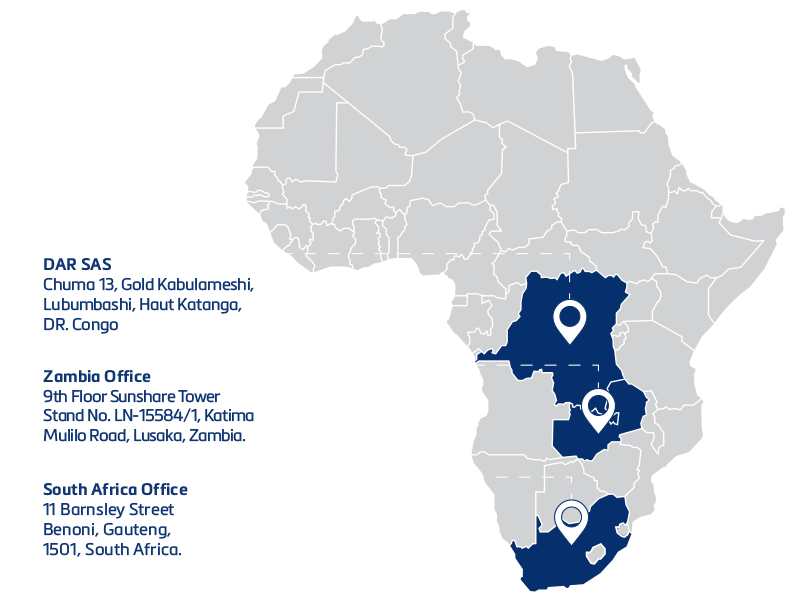The Dawn of a New Industrial Era: BT Industrial’s Transformation through Artificial Intelligence
- October 4, 2023
- 2:36 pm
- Kgomotso Lekola

In an increasingly digitalised world, AI (Artificial Intelligence) has become the driving force behind numerous industrial transformations. One industry that has significantly optimised its operations through AI is manufacturing. This article delves into BT Industrial’s journey of incorporating AI into its operations and the remarkable benefits realised from this integration.
BT Industrial: At the Forefront of Innovation
BT Industrial, an esteemed name in the industrial sector, has been at the forefront of innovation, embracing the transformative potential of AI and computer vision. The company’s commitment to leveraging technology for precision and performance is evident in its AI-backed ERP (Enterprise Resource Planning) systems used in managing production.
Bold strides in digital transformation
BT Industrial has made great strides in digital transformation by eliminating paper from its production process. This shift towards automation has enabled accurate, real-time data collection, contributing to operational efficiency. The company’s systems, including ERP, production scheduling, logistics scheduling, and HR, are all integrated into the cloud, illustrating its commitment to technological advancement.
Telemetry and SCADA systems
BT Industrial utilises telemetry and SCADA (Supervisory Control and Data Acquisition) systems to monitor and record all aspects of its production environment. These data sets provide a fertile ground for AI models, enabling the extraction of key insights from vast volumes of data.
AI’s role in spotting trend shifts
AI has demonstrated exceptional prowess in identifying subtle trend shifts in data that may otherwise go unnoticed. This ability is particularly valuable in instances where small changes can have significant impacts, and the causal links may be hard to decipher.
By harnessing the power of AI, BT Industrial has improved its operational efficiencies by 18% and identified leakages that were previously invisible. Furthermore, AI has empowered the company to gain novel insights, leading to significant changes in product pricing, production operations, and customer engagement.
The AI Revolution in Manufacturing
AI and computer vision have dramatically enhanced productivity in manufacturing. They achieve this by automating repetitive tasks, streamlining production processes, and improving overall operational efficiency. For African manufacturers like BT Industrial, the integration of AI-driven systems can automate routine tasks such as data collection, quality inspection, and inventory management.
Quality control through AI
Quality control is a critical aspect of manufacturing, and AI significantly enhances this process. Computer vision systems paired with AI algorithms can detect defects, inconsistencies, or deviations from specifications in real-time. By promptly identifying and rectifying quality issues, manufacturers can ensure that only products meeting the required quality standards reach the customers.
Inventory management made efficient
Effective inventory management is crucial for optimising costs and ensuring timely production. Computer vision systems accurately identify and track inventory levels, enabling real-time monitoring of stock levels, identifying shortages or excesses, and facilitating timely replenishment.
Optimising the workforce
AI and computer vision technologies can optimise the workforce in manufacturing by enhancing human capabilities and automating repetitive or hazardous tasks. By delegating routine tasks to AI-driven systems, employees can focus on more complex and value-added activities, such as problem-solving, innovation, and process optimisation.
Data-Driven Decision Making
AI and computer vision technologies generate vast amounts of data that can be leveraged to make informed decisions. By analysing real-time data from sensors, cameras, and other sources, AI algorithms provide valuable insights into production processes, product performance, and customer preferences.
Conclusion
The integration of AI and computer vision technologies in manufacturing has the potential to transform the African industrial landscape. With increased productivity, improved quality control, optimised inventory management, workforce optimisation, and data-driven decision-making, BT Industrial is paving the way for future revolutions in the manufacturing industry.
The company’s journey serves as a testament to the transformative potential of AI, providing valuable insights for other manufacturers seeking to embark on a similar path. As AI continues to evolve and mature, it will undoubtedly shape the future of manufacturing, heralding a new era of industrial innovation and efficiency.
